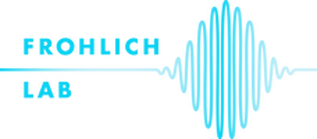Open Studies Enrolling Participants
Together with the Carolina Center for Neurostimulation, we are actively recruiting participants for several clinical trials.
Why participate? We find that people decide to participate in clinical trials since they are looking for a new and different approach to managing their mental health. Also, people often participate since they are motivated to help with the discovery and development of new treatments for their condition. if you have general questions about our clinical trials, we welcome you to contact us. We look forward to hearing from you!
Why participate? We find that people decide to participate in clinical trials since they are looking for a new and different approach to managing their mental health. Also, people often participate since they are motivated to help with the discovery and development of new treatments for their condition. if you have general questions about our clinical trials, we welcome you to contact us. We look forward to hearing from you!
Studies Looking for Participants with Anxiety
At-Home Cranial Electrotherapy Stimulation (CES) for the Treatment of Generalized Anxiety Disorder in Young Adults: Double-Blind Sham-Controlled Randomized Clinical Trail
Study Purpose:
Investigate the efficacy of an at-home brain stimulation device for the treatment of Generalized Anxiety Disorder is young adults.
Target Population:
Young adults (18-21) diagnosed with Generalized Anxiety Disorder.
Compensation:
Up to $500.
Participants may qualify if they:
Study Procedures:
Interested?
Find out if you are eligible with our brief and secure online screening survey: bit.ly/cesgad_fl
Have Questions?
Please email GADstudy_CCN@med.unc.edu with any questions and a member of our research team will reach back out!
IRB #22-3341: If you have questions or concerns about your rights as a research subject you may contact the UNC Institutional Review Board at contact IRB_subjects@unc.edu.
Investigate the efficacy of an at-home brain stimulation device for the treatment of Generalized Anxiety Disorder is young adults.
Target Population:
Young adults (18-21) diagnosed with Generalized Anxiety Disorder.
Compensation:
Up to $500.
Participants may qualify if they:
- Are between the ages of 18 and 21 years old
- Regularly experiencing anxiety symptoms
- Are not diagnosed with psychosis, bipolar disorder, epilepsy, or substance-use disorder
Study Procedures:
- Remote screening interview
- Two in-person visits
- 6 weeks of daily at-home brain stimulation with questionnaires and weekly check-ins
- 5 weeks of online follow-up questionnaires
- Final phone interview
Interested?
Find out if you are eligible with our brief and secure online screening survey: bit.ly/cesgad_fl
Have Questions?
Please email GADstudy_CCN@med.unc.edu with any questions and a member of our research team will reach back out!
IRB #22-3341: If you have questions or concerns about your rights as a research subject you may contact the UNC Institutional Review Board at contact IRB_subjects@unc.edu.
Studies Looking for Participants with Depression
Closed-Loop Transcranial Alternating Current Stimulation for the Treatment of Depression (CLACS): Single-Site Open-Label Pilot Study
We investigate the effects of 5 days of personalized non-invasive brain stimulation on mood in people with depressive symptoms in a clinical research trial.
Who is eligible:
Ages 18-70
Diagnosis of major depressive disorder
Current depressive symptoms
What will you receive:
Up to $300
Free parking at study site
Study Outline:
1. Screening session (1h): Consent, eligibility, questionnaires. (remote option)
2. Stimulation week (each day 1.5h): five consecutive days with 40 min non-invasive brain stimulation, questionnaires
3. One-week follow-up (30 min): Online questionnaires.
4. Two-week follow-up (1h): Questionnaires & assessments. (Remote option)
Take our online screening to find out if you are eligible: https://redcap.link/CLACSStudy
Location:
100 Market Street
Chapel Hill, NC 27516
CCN@med.unc.edu
IRB #22-3094
Who is eligible:
Ages 18-70
Diagnosis of major depressive disorder
Current depressive symptoms
What will you receive:
Up to $300
Free parking at study site
Study Outline:
1. Screening session (1h): Consent, eligibility, questionnaires. (remote option)
2. Stimulation week (each day 1.5h): five consecutive days with 40 min non-invasive brain stimulation, questionnaires
3. One-week follow-up (30 min): Online questionnaires.
4. Two-week follow-up (1h): Questionnaires & assessments. (Remote option)
Take our online screening to find out if you are eligible: https://redcap.link/CLACSStudy
Location:
100 Market Street
Chapel Hill, NC 27516
CCN@med.unc.edu
IRB #22-3094
Augmenting Behavioral Activation (ABA) Study
This study provides a brief single-session of psychotherapy aimed at providing tools to manage depression. You may or may not receive non-invasive brain stimulation while receiving this therapy.
Who is Eligible:
Ages 18 and older
Current diagnosis of major depressive disorder
What will you receive:
Opportunity to explore your values and receive new strategies for managing your depression
Up to $100
Free parking on site
You will be asked to complete a baseline session (3 hours), a treatment session (2 hours), a follow-up session (2.5 hours), and fill out questionnaires online (0.5 hours)
Contact Corinne (ABA_study@med.unc.edu) for more information or to schedule your phone screening.
Who is Eligible:
Ages 18 and older
Current diagnosis of major depressive disorder
What will you receive:
Opportunity to explore your values and receive new strategies for managing your depression
Up to $100
Free parking on site
You will be asked to complete a baseline session (3 hours), a treatment session (2 hours), a follow-up session (2.5 hours), and fill out questionnaires online (0.5 hours)
Contact Corinne (ABA_study@med.unc.edu) for more information or to schedule your phone screening.
